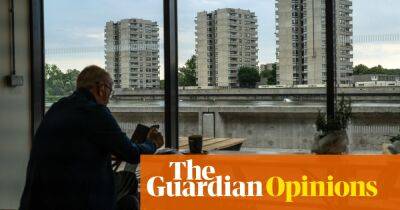I worked for BP for 30 years – the energy sector has become incompetent and greedy
A freeze on the energy price cap now looks inevitable. The increase that Ofgem plans to announce on 26 August and the further increases later in the year should be abandoned by the energy regulator, whose functions have been overwhelmed by events. Ofgem cannot realistically set in motion a process that further fuels inflation, already running at 10%, and condemns millions to fuel poverty. The honourable resignation of Ofgem board member Christine Farnish will not be the last departure from an organisation that has lost its way.
The freeze is necessary but far from sufficient. We still rely on natural gas for about 40% of our daily energy consumption. The promised energy transition has barely begun. The price of the gas we import – about half of total consumption – will still be set on the world market, and is likely to keep rising, especially if Europe’s hot summer is followed by a cold winter. Further action is needed, from the government and the energy industry.
First, a support scheme must be put in place that protects the poorest people and those struggling on tight budgets. The welfare system can be used to protect those on benefits, but some further action, perhaps through rebates on the lower bands of council tax, may be the best way of helping those for whom current energy prices are creating hardship. Business rates can also be varied, as during Covid, to help those enterprises in greatest jeopardy. Energy retailers should be required to demonstrate they are supporting those in need, not least by ending the pernicious extra charges imposed for those using pre-payment meters.
Second, there must be a forensic examination of the accounts of companies across the energy sector. In each case, they must set out their
Read more on theguardian.com










![Polkadot [DOT] investors should be aware of these updates before pulling out - ambcrypto.com - city Santiment](https://finance-news.co/storage/thumbs_400/img/2022/9/12/40436_u2p.jpg)




![Litecoin [LTC]: The when and how of traders capitalizing on this opportunity - ambcrypto.com - Beyond](https://finance-news.co/storage/thumbs_400/img/2022/9/11/40431_rfi.jpg)
![Should Optimism [OP] holders rejoice with Ethereum’s Merge coming up - ambcrypto.com - city Santiment](https://finance-news.co/storage/thumbs_400/img/2022/9/11/40430_qqhf.jpg)



